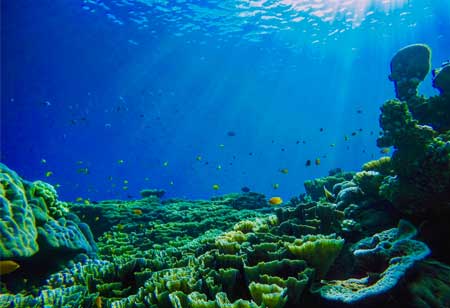THANK YOU FOR SUBSCRIBING
Marines - The Source of Ocean Information
A group of scientists from the University of Exeter suggest that sea animals can be useful in transmitting oceanographic information from electronic tags.

By
Apac CIOOutlook | Friday, December 06, 2019
Stay ahead of the industry with exclusive feature stories on the top companies, expert insights and the latest news delivered straight to your inbox. Subscribe today.
A group of scientists from the University of Exeter suggest that sea animals can be useful in transmitting oceanographic information from electronic tags.
Fremont, CA: The oceans cover 71 percent of Earth's surface and is changing continuously as a result of human activities and to some extent, naturally too. Hence, systematic and sustained observation of the marine ecosystem is required to study the changes and know more about them.
Till today the oceans are monitored mostly by the underwater drones, research vessels, and a number of floating sensors that flow away with the currents. It leaves a large area of the ocean under-sampled hence creating a gap in our knowledge.
A group of scientists from the University of Exeter have found solutions to bridge this gap. They suggest that sea animals can be useful in transmitting oceanographic information from electronic tags. The natural behavior of the animals like diving under ice, moving undercurrents, and swimming in shallow water can be used to get information by adding a sensor to their body.
Dr David March, of Centre for Ecology and Conservation on Exeter's Penryn Campus in Cornwall, said, "We want to highlight the massive potential of animal-borne sensors to teach us about the oceans. This
is already happening on a limited scale, but there's scope for much more."
"We looked at 183 species – including tuna, shark, rays, whales and flying seabirds – and the areas they are known to inhabit. We have processed more than 1.5 million measurements from floating sensors to identify poorly sampled areas (18.6% of the global ocean surface)."
Professor Brendan Godley, who leads Exeter Marine, said, "By comparing this with gaps in current observations by drifting profiling sensors (known as Argo floats), we identified poorly sampled areas where data from animal sensors would help fill gaps. These include seas near the poles (above 60º latitude) and shallow and coastal areas where Argo profilers are at risk of hitting the land."
"The Caribbean and seas around Indonesia, as well as other semi-enclosed seas, are good examples of places where Argo profilers struggle because of these problems."
Scientists say that the data collected by turtles or sharks could also improve ocean monitoring in other isolated and critical areas such as tropical regions, with a large influence on global climate variability and weather.
See Also :- Top Marine Tech Solution Companies






